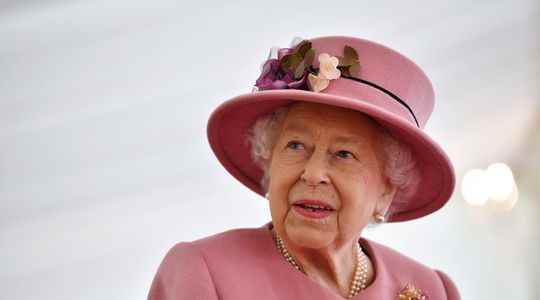Update September 8, 2022: Buckingham Palace announced on Thursday that Queen Elizabeth II had been placed “under medical supervision”. Doctors say they are concerned, as her family gathered at Balmoral Castle in Scotland where she is.
Elizabeth II celebrates her 95th birthday on Wednesday, a particularly poignant birthday for the Queen of England. The recent death of her husband, Prince Philip, and the anthology of health restrictions still in place despite the gradual deconfinement, darken a day traditionally celebrated throughout the Kingdom.
“Nothing will be like before”
The images of the queen, sitting alone on the wooden benches of Saint George’s Chapel at Windsor Castle, have gone around the world: they have shown an era that is ending and another that is coming. “Nothing will be the same for the English monarchy,” sums up political scientist Jonathan Freedland. On the one hand, the very strong bond that has existed between the queen and her subjects since her ascent to the throne in 1952, at the age of 25, is further strengthened by the ordeals that the sovereign is going through. “To deference and admiration is added tenderness”, explains Freedland, in other words a powerful alliance of feelings. And if the sovereign is still there in 2022 to celebrate her platinum jubilee, or seventy years of reign, an unprecedented achievement in the history of the English monarchy, relations between the British and their monarch will reach a historic climax.
On the other hand, however, and by simple effect of contrast, the lack of popularity of the heir to the throne, Prince Charles, whose private and public lives have not been long calm rivers, promises a clean break with the past. His future reign will not benefit from the same capital of sympathy and support from his subjects, and the sovereign will perhaps no longer play the same role as in the time of his parents.
“The Queen is now the only one”
If certain things can continue for a long time, such as pomp and ceremony, for which the English monarchy shows an unequaled talent, we can also envisage future kings of England no longer fulfilling the four essential functions that the famous political scientist in the middle of the 19th century, William Bagehot, attributed to the monarchy. The author of the classic The English Constitution, had defined the monarchy as “the worthy part” of the unwritten Constitution of the country. According to him, by providing the country and in the same person, a Head of State, a Chief of the Armies, a Moral Chief and a symbolic religious Chief, the authority and the action of the Government in place are thereby all the more reinforced and stabilized. Let us remember that the laws must obtain the royal seal, the foreign ambassadors must be approved by the court and that the soldiers and besides any new citizen must swear loyalty to the Crown and not to Parliament or to the State.
But to fulfill these strong symbolic roles, it is still necessary that the sovereigns impose respect on their subjects and prove to be up to expectations. Whether it’s Prince Charles, who has neither the reserve nor the composure of his mother, Prince Andrew, pursued by American investigators in the Epstein affair, or even William and Harry, now enemy brothers, no member of the royal family commands respect like the wartime generation did, that national cement. None had the military career of Prince Philip, and even less the experience of exile which had made him a keen observer of the fragility of empires and monarchies. “The Queen is now the only one who knows from experience that stability and continuity are never guaranteed and that only work, perseverance and flexibility can help contribute to it,” explains Jonathan Freedland.
After Queen Victoria and her Prince Consort Albert who marked the entire 19th century, her granddaughter Elizabeth and her Prince Consort Philip who fulfilled the same role in the following century, who to represent “the worthy part” of British institutions? Apart from providing material for the tabloids or screenwriters, it is hard to see the family of Prince Charles and his wife Camilla, Duchess of Cornwall, maintain the level of requirement and rigor erected by previous generations.
